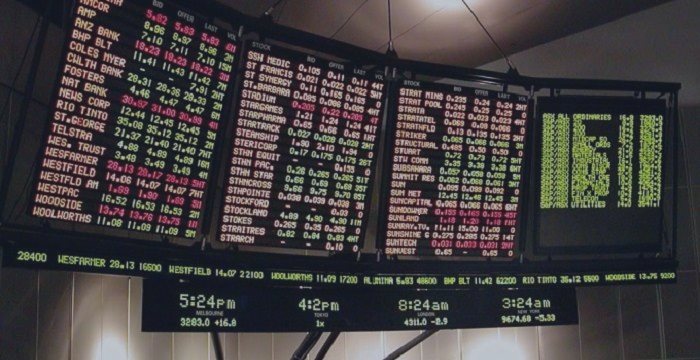The major talking point on the currency markets is again centered on the falling oil prices, with both Brent and Crude falling to fresh six-year lows. In just over one day, Brent has declined from $50.70 to $47.38, while Crude has plunged from $47.73 to $44.86. Although the overpowering supply and demand equation is already heavily-weighted in favour of the bears, the scales were further tipped in the same direction when industry forecasters announced they were lowering 2015 forecasts. This just renewed selling pressure on the commodity, where a floor remains to be in sight. It appears that Crude is on its way to $42, a level that many see as psychological support.
The continuing decline in oil prices is once again pressuring energy stocks, which is consequently having a domino effect and also leading to a decline in global stocks. In a pattern we are continuing to see, global stocks pointing to the downside have increased investor attraction towards the JPY with the USDJPY pulling back to 117.734. The decline in global stocks is an interesting one, because what the markets seem to be concerned about are lower company profits and possible reduced employment prospects. However, this doesn’t take into account that household budgets are now being eased to an extent where consumer sentiment is improving and retailers should see the benefit of improved consumer spending.
The falling oil prices also inspired rapid weakness in the Canadian Loonie, with the USDCAD rocketing to 1.1976. This pair is just continuing to fly, and has been on a 400 pip bull run since the Royal Bank of Canada (RBC) confirmed late November that the decline in oil would be negative for the Canadian economy. This provided a green light to the USDCAD bulls to take the pair to its highest level in nearly six years. We are not only looking at the prospects for the Canadian economy to be negatively impacted by the decline in a major industry sector, but the decline will also promote a laissez-faire stance towards raising Canadian interest rates from the RBC. This also means the CAD will suffer from a lack of investor attraction, which is a similar story to the GBP at present.
The domino effect has not ended here by any means, with the USDRUB opening trading only moments ago and already being within touching distance of one USD to 65 Rouble. Until the oil markets find a floor, the Central Bank of Russia (CBR) faces an extremely difficult task strengthening a currency which will only come under further pressure when a recession in Russia is confirmed this year. The Norwegian Kroner is also coming under increasing pressure, with the USDNOK rising to 7.7546. Again, this is approaching a level not seen since the Norges Bank unexpectedly lowered interest rates last month, and goes some way towards proving the increasing pressure currencies are facing with the decline in oil.
The pressure on global stocks appears to be weighing on the USD on this morning, which is reigniting interest in Gold. After declining to $1217 yesterday after failing to surpass $1230, the metal has rebounded and is currently at $1238. This level represents the 50.0 fib level from the previous low to the previous high on the daily chart, and was seen as stubborn resistance in December. If Gold manages to break through this level, we could be looking at gains towards $1250.
Prior to today’s UK inflation release, the GBPUSD is coming under selling pressure with the data representing a major event risk to the UK currency. The primary fear is that UK inflation levels will be announced at below at annualised 1%, which could lead to some investors delaying a potential UK interest rate rise back until next year. The BoE (Bank of England) currently projects a short-term inflation decline, therefore speculation over delaying any possible UK rate rises for the remainder of the year could be a bit premature. However, it is inevitable that weakening inflation would significantly further strengthen the BoE’s dovish views on inflation, and reduce investor attraction towards the GBP even further.
Written by Jameel Ahmad, Chief Market Analyst at FXTM.
For more information please visit: Forex Time.
Disclaimer: The content in this article comprises personal opinions and ideas and should not be construed as containing personal and/or other investment advice and/or an offer of and/or solicitation for any transactions in financial instruments and/or a guarantee and/or prediction of future performance. ForexTime Ltd, its affiliates, agents, directors, officers or employees do not guarantee the accuracy, validity, timeliness or completeness of any information or data made available and assume no liability as to any loss arising from any investment based on the same.
Risk Warning: There is a high level of risk involved with trading leveraged products such as forex and CFDs. You should not risk more than you can afford to lose, it is possible that you may lose more than your initial investment. You should not trade unless you fully understand the true extent of your exposure to the risk of loss. When trading, you must always take into consideration your level of experience. If the risks involved seem unclear to you, please seek independent financial advice
NOTES TO EDITORS
The FXTM brand name was founded by Andrey Dashin in December 2012. FXTM provides access to the global currency market and offers trading in forex, precious metals, Share CFDs, ETF CFDs and CFDs on Commodity Futures. Trading is available via the MT4 and MT5 platforms with spreads starting from just 0.5 on Standard trading accounts and from 0.1 on ECN trading accounts. Bespoke trading support and services are provided based on each client’s needs and ambitions – from novices, to experienced traders and institutional investors. ForexTime Limited is regulated by the Cyprus Securities and Exchange Commission (CySEC), with licence number 185/12 and FT Global Limited is regulated by the International Financial Services Commission (IFSC) with license numbers IFSC/60/345/TS/14 and IFSC/60/345/APM/14.



